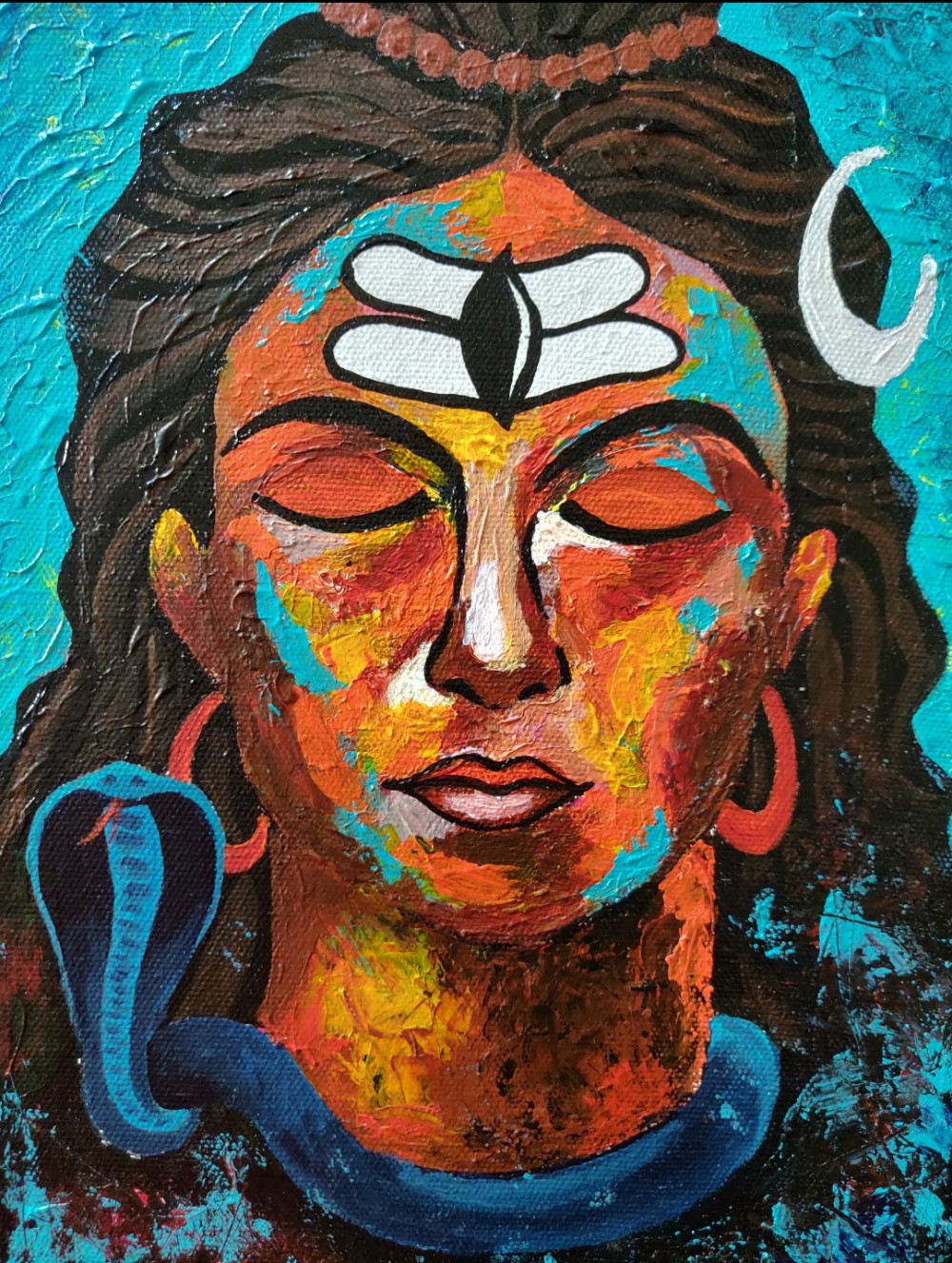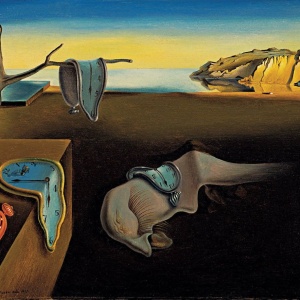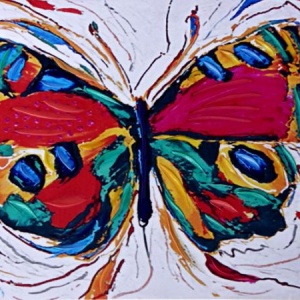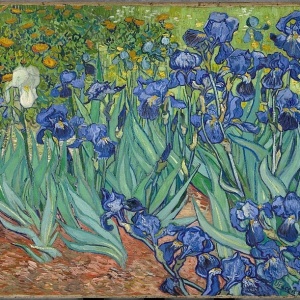Description
Lord Shiva
Painting type:
Acrylic painting
Size:
120cm x 190cm
Note:
Unframed painting!
Information:
Lord Shiva is considered the “Destroyer” within the Trimurti, a Hindu trinity consisting of Brahma and Vishnu. According to Shaivite tradition, Shiva is the Supreme Sovereign who creates, protects and transforms the universe. According to Shakta tradition, the Goddess, or Devi, is described as the supreme being, but Shiva is venerated along with Vishnu and Brahma. The goddess is referred to as each new force and power (Shakti), and Parvati (Sati) an equal partner of Shiva. He is one of the 5 equal gods of the Panchayatana puja of the Smarta and Hindu culture.
Shiva is the first Atman (soul, himself) of the universe. There are many kind and terrifying images of Shiva. With graceful features, she is portrayed as an all-knowing Yogi who lives a modest life on Mount Kailash as a homeowner and partner Parvati and her two children, Ganesha and Kartikeya. In his fierce rage, he is often portrayed as killing demons. Shiva is also known as Adiyogi Shiva, who is considered the god of the consumer of yoga, meditation and art.
Features of Shiva’s art are a snake around his neck, a beautifully decorated moon, the holy river Ganga flowing from his rubbed hair, a 1/3 eye on his forehead, a trishula or trident, as his weapon, and a drum. It is usually served in the form of an aniconic lingam. Shiva is a pan-Hindu deity, revered in Hinduism, India, Nepal, and Sri Lanka.
Etymology and alternative words –
Ancient sculpture of Shiva at Elephanta Caves, geographic region. sixth century metallic element
The Sanskrit word for “śiva” (Devanagari: शिव, conjointly translated shiva) suggests that, says Monier Monier-Williams, “lucky, kind, kind, kind, kind, friendly”. The roots of śiva in etymology etymology which means “in him all, spread” no va which means “act of kindness”.
The word Shiva is employed as associate adjective within the Rig Veda (c. 1700–1100 BC), as associate epithet of many Rigvedic deities, as well as Hindu deity. The word Shiva conjointly suggests that “liberation, final liberation” and “noble”, this adjective which means is applied to several gods within the religious writing texts. The name originated from the religious writing Rudra-Shiva to the name Shiva within the Epics and Puranas, because the pleasant deity of “creator, producer and smelter”.
Sharva, sharabha introduced another etymology with Sanskrit varv- roots, which means “to injure” or “kill”, interprets the word to incorporate “a one that will kill the forces of darkness”.
The Sanskrit word śaiva suggests that “concerning the god Shiva”, and also the name could be a Sanskrit word for each one among the key Hindu sects and a member of that sect. it’s used as associate adjective to precise sure beliefs and practices, like Shaivism.
Vishnu sahasranama interprets Shiva as having several meanings: “Pure”, and “He United Nations agency is unaffected by the 3 3 of Prakṛti (Sattva, Rajas, and Tamas)”.
Shiva is thought by several names like Viswanatha (king of the universe), Mahadeva, Mahandeo, Mahasu, Mahesha, Maheshvara, Shankara, Shambhu, Rudra, Hara, Trilochana, Devendra (king of the gods), Neelakanta, Subhankara, Trilokinatha (king of the 3 spheres), and and Ghrneshwar (lord of kindness). Shiva’s high reverence for Shaivism is clear in his epithets Mahādeva (“Great God”; mahā “Great” and deva “god”), Maheśvara (“Great King”; mahā “great” and īśvara “king”), and Parameśvara (” The Supreme Lord “).
Sahasranama is associate ancient Indian inscription reciting k words supported the attributes and writings of the gods. There square measure a minimum of eight totally different versions of Shiva Sahasranama, prayer songs (stotras) listing several Shiva words. A version from the religious writing Book thirteen (Anuśāsanaparvan) provides one such list. Shiva conjointly has Dasha-Sahasranamas (10,000 words) found in Mahanyasa. Shri Rudram Chamakam, conjointly referred to as arudatarudriya, could be a prayer song of Lord Shiva that praises him with several words.





